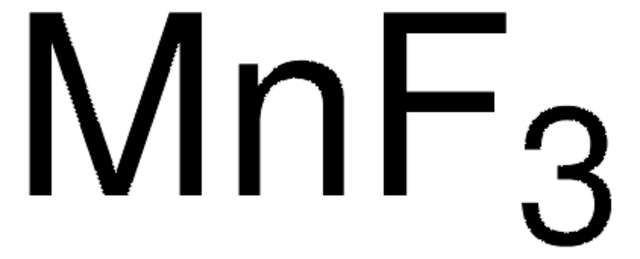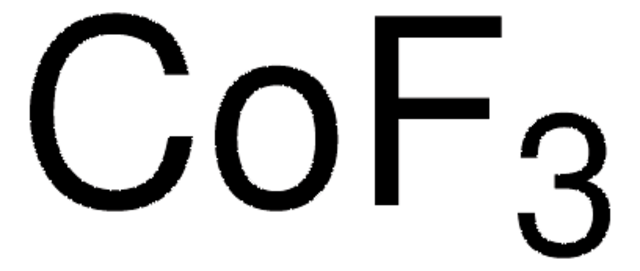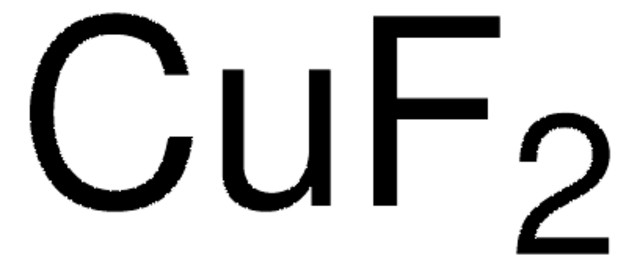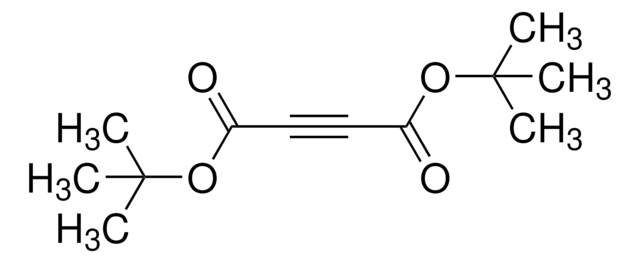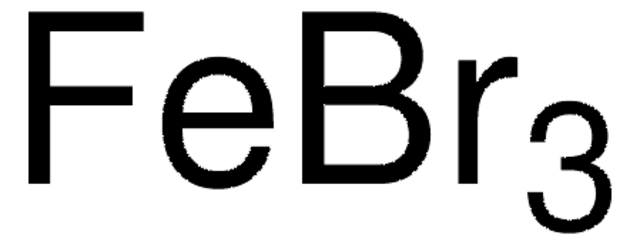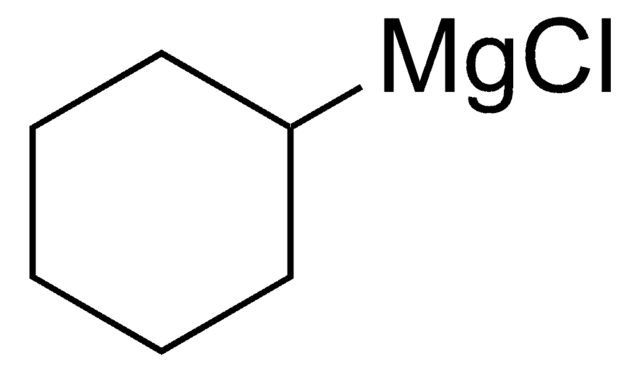288659
Iron(III) fluoride
46.5-50.7% Fe (by Na2SO3, titration)
Synonym(s):
Ferric fluoride
About This Item
Recommended Products
form
powder
Quality Level
concentration
46.5-50.7% Fe (by Na2SO3, titration)
application(s)
battery manufacturing
SMILES string
F[Fe](F)F
InChI
1S/3FH.Fe/h3*1H;/q;;;+3/p-3
InChI key
SHXXPRJOPFJRHA-UHFFFAOYSA-K
General description
Application
- To produce high-capacity lithium storing cathodes via liquid phase exfoliation method.
- As a cathode material for sodium-ion batteries.
- As a catalyst for the conversion of carbonyl compounds into oxathioacetals and dithioacetals.
Signal Word
Warning
Hazard Statements
Precautionary Statements
Hazard Classifications
Skin Irrit. 2
Storage Class Code
11 - Combustible Solids
WGK
WGK 3
Flash Point(F)
Not applicable
Flash Point(C)
Not applicable
Personal Protective Equipment
Choose from one of the most recent versions:
Already Own This Product?
Find documentation for the products that you have recently purchased in the Document Library.
Customers Also Viewed
Articles
Lithium-Ion Battery Performance: Dependence on Material Synthesis and Post‑Treatment Methods
Plasmonic nanoparticles have unique optical properties that can be tailored to suit a variety of applications in the biotechnology1–8 and electronics9–16 industries.
Our team of scientists has experience in all areas of research including Life Science, Material Science, Chemical Synthesis, Chromatography, Analytical and many others.
Contact Technical Service